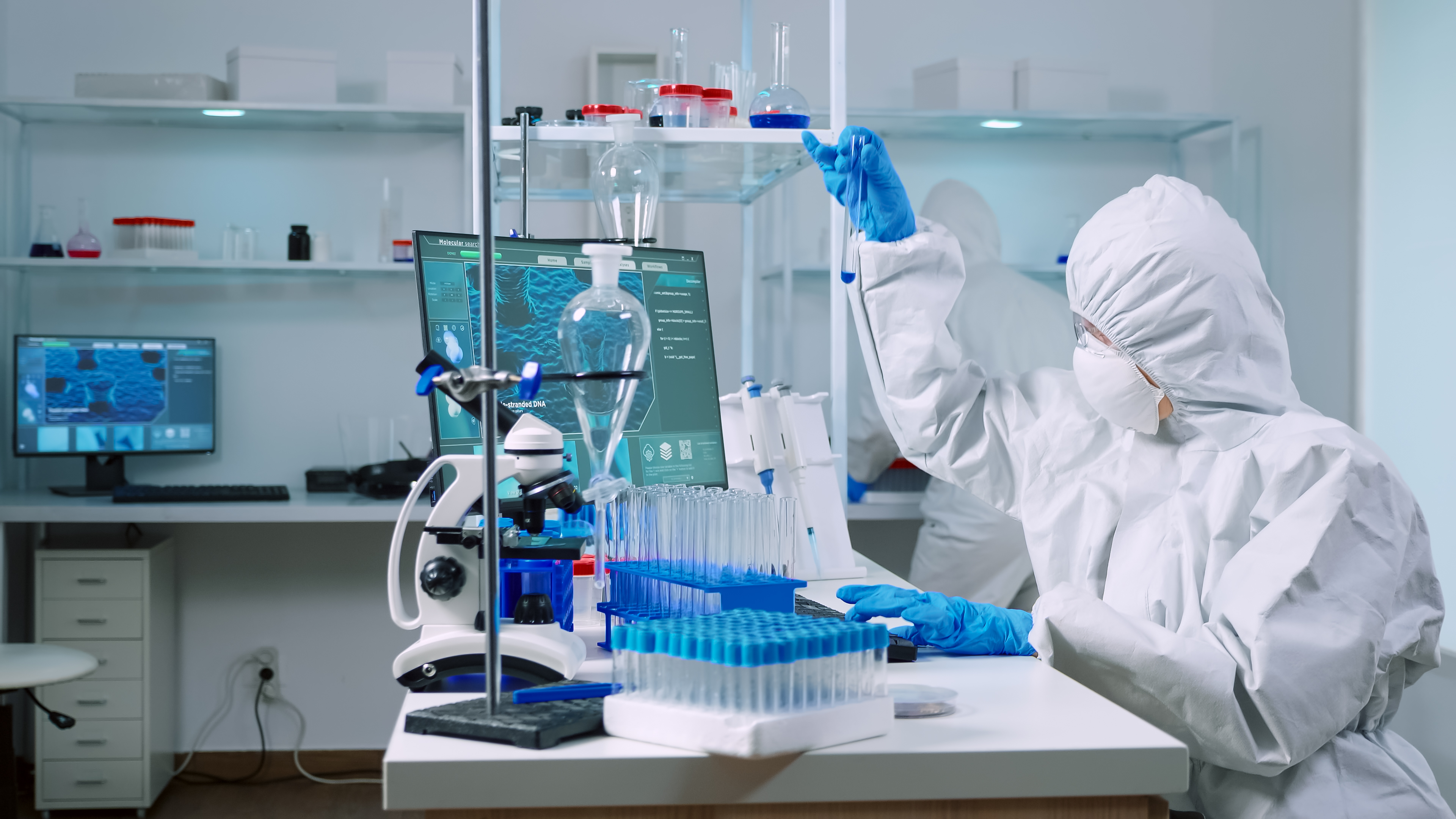The pharmaceutical industry has undergone major changes recently, spurred by the Covid-19 pandemic, trade restrictions, and geopolitical shifts. These disruptions have increased the reliance on Contract Development and Manufacturing Organizations (CDMOs). CDMOs play an important role in assisting pharmaceutical companies with complex production processes. As the industry moves towards more advanced therapies (ATx), CDMOs play an integral role in the development and manufacturing of both traditional and innovative treatments.
This blog will explore what a CDMO is, its key functions, and why it is essential for the pharmaceutical industry to collaborate with these specialized organizations.
What is a CDMO?
Contract Development and Manufacturing Organizations (CDMOs) are key players in the pharmaceutical industry. These companies specialize in providing services to help pharmaceutical companies develop and manufacture their drugs. CDMOs support their clients through various stages of drug production, from early development to commercial manufacturing. Their expertise enables pharmaceutical companies to focus on research and marketing while outsourcing complex manufacturing processes.
Key Functions of a CDMO
A Contract Development and Manufacturing Organization (CDMO) provides essential services to pharmaceutical companies. Their primary role is to assist in the development and manufacturing of drugs. Here are the key functions of a CDMO:
1. Formulation Development
CDMOs help in the creation of drug formulations. This process includes designing the right combination of ingredients. It ensures the drug is stable, effective, and safe for use. The goal is to create a product that meets regulatory requirements and patient needs.
2. Process Development
CDMOs develop efficient processes for manufacturing drugs. They focus on optimizing the production process to ensure consistency, scalability, and cost-effectiveness. This includes identifying the best methods for scaling from small laboratory batches to larger commercial productions. Read More: What is CMC in Pharma? Key Insights into Drug Development
3. Clinical Manufacturing
CDMOs support clinical trials by producing the required amounts of drug for research purposes. They manufacture small batches of drugs for Phase I, II, and III clinical trials. This ensures the drug can be tested under regulated conditions before moving to full-scale production.
4. Commercial Manufacturing
Once a drug passes clinical trials, CDMOs can transition into large-scale manufacturing. They produce commercial quantities of the drug, ensuring consistency in every batch. CDMOs have the infrastructure and technology to handle large-scale production while meeting all quality and regulatory standards.
5. Packaging and Labeling
CDMOs also take care of packaging and labeling. This includes creating packaging that meets regulatory standards and is designed for easy distribution. They ensure that each product is clearly labeled with the correct dosage, instructions, and expiration dates.
6. Regulatory Compliance
A key function of CDMOs is ensuring the drug complies with regulations. They navigate the complex landscape of local and international regulatory bodies. CDMOs help secure approvals for each stage of the product’s development, from clinical trials to commercial production.
7. Quality Control and Assurance
Quality is critical in drug manufacturing. CDMOs implement rigorous quality control measures at every stage of the process. They conduct tests and checks to ensure the product meets all safety and efficacy standards. This includes routine audits, batch testing, and validation of manufacturing processes.
8. Supply Chain Management
CDMOs manage the supply chain for pharmaceutical products. They ensure the timely availability of raw materials, equipment, and components. Effective supply chain management helps avoid production delays and ensures the final product reaches the market on time.
9. Technology Transfer
CDMOs manage the technology transfer process, which involves moving drug production from the development phase to full-scale manufacturing. They ensure that the manufacturing process can be replicated consistently on a larger scale without compromising quality or efficiency.
10. R&D Support
CDMOs may also offer research and development (R&D) services. They assist in the
creation of new drug formulations or the improvement of existing products. This function is particularly valuable for pharmaceutical companies looking to innovate or improve their product offerings.
Difference Between CDMOs, CMOs, and CROs
Though the terms CDMO, CMO (Contract Manufacturing Organization), and CRO (Contract Research Organization) are often used interchangeably, they serve different functions. A CMO primarily focuses on manufacturing, while a CDMO offers additional services such as drug development and formulation. On the other hand, a CRO is responsible for clinical research, including trials and studies. In short, CDMOs go beyond manufacturing to provide a full range of services that include development and scaling production.
Why Pharma Partners Choose CDMOs
Pharmaceutical companies partner with CDMOs for various reasons.
- First, they offer specialized expertise that may not exist in-house. CDMOs provide flexibility in terms of scale, from small batches to large-scale production.
- By outsourcing manufacturing to a CDMO, pharma companies save on capital costs related to setting up their own facilities.
- CDMOs can also help speed up time-to-market, ensuring drugs reach consumers faster.
Benefits of Working With a CDMO
Working with a CDMO offers several advantages.
|
Benefit |
Description |
|
Cost Efficiency |
Save on capital expenditure by outsourcing production instead of investing in manufacturing facilities. |
|
Expertise and Experience |
CDMOs provide specialized knowledge and extensive experience in drug development and manufacturing. |
|
Faster Time to Market |
CDMOs help accelerate the transition from development to production, reducing time-to-market for new products. |
|
Scalability |
CDMOs offer flexible manufacturing capabilities, adjusting production sizes to match the company’s needs at any stage. |
|
Focus on Core Competencies |
Outsourcing manufacturing allows companies to focus on research, marketing, and sales, while the CDMO handles production. |
|
Regulatory Support |
CDMOs are experienced in navigating complex regulatory requirements, ensuring compliance and reducing approval delays. |
|
Risk Reduction |
CDMOs minimize production errors and ensure consistent product quality, reducing the likelihood of recalls or regulatory issues. |
|
Access to Advanced Technologies |
CDMOs provide access to the latest manufacturing technologies, improving efficiency and product quality without the need for heavy investment. |
|
Faster Innovation |
CDMOs assist in R&D, helping companies innovate faster and stay competitive by improving drug formulations and offerings. |
|
Global Reach |
CDMOs often have global networks, helping companies meet market demand across multiple regions more effectively. |
Trends in the CDMO Industry
The CDMO industry is evolving with new trends emerging regularly.
1. Growing Demand for Biologics and Biosimilars
Biologics are complex, large-molecule drugs derived from living organisms, and biosimilars are near-identical copies of biologics. As the demand for these treatments rises, CDMOs are adapting their manufacturing processes to handle the intricate production of biologics. This includes mastering cell culture-based production systems and ensuring the maintenance of quality, consistency, and compliance with regulatory standards.
The growing prevalence of chronic diseases like cancer, diabetes, and autoimmune disorders has contributed to the rising demand for biologics. As biologics typically require more advanced, specialized manufacturing techniques, CDMOs are increasingly becoming experts in this field to meet the needs of biopharmaceutical companies.
2. Advancements in Technology and Automation
The introduction of advanced technologies such as Artificial Intelligence (AI), machine learning, and automation has significantly impacted the CDMO industry. Automation in production facilities enables CDMOs to enhance efficiency, reduce human errors, and ensure consistent quality across all stages of drug development and manufacturing.
Real-time data monitoring and AI-based analytics are now being used to optimize processes and streamline production timelines. By leveraging these technologies, CDMOs can manage large-scale manufacturing, track and analyze performance, and predict potential production issues before they arise, ultimately increasing productivity and reducing costs.
3. Focus on Sustainability and Environmentally Friendly Practices
Sustainability has become an essential consideration for CDMOs, especially as the pharmaceutical industry faces increasing pressure from regulators, consumers, and stakeholders to reduce environmental impact. CDMOs are adopting greener manufacturing practices, such as minimizing waste, reducing water and energy consumption, and using environmentally friendly materials.
Companies are also working on developing sustainable packaging and greener chemical processes. Many CDMOs are pursuing certifications for environmental practices, such as ISO 14001, and adhering to stringent sustainability standards. This focus on sustainability not only reduces the carbon footprint of pharmaceutical manufacturing but also aligns with global efforts to combat climate change.
4. Rise of Personalized Medicine
Personalized medicine, which tailors treatments based on individual genetic profiles, is becoming a game-changer in healthcare. As treatments become more targeted and customized, the demand for smaller batch production, flexible manufacturing, and specialized production techniques is rising.
CDMOs are now adjusting their processes to accommodate these needs by offering more versatile production capabilities. They are adopting advanced technologies to produce biologics, cell therapies, and gene therapies in smaller quantities while maintaining cost-efficiency and regulatory compliance. CDMOs are also ensuring that they can support the clinical trials and commercial launches of personalized treatments, making them essential partners for biopharmaceutical companies looking to advance in this space.
How to Choose the Right CDMO Partner
Choosing the right CDMO (Contract Development and Manufacturing Organization) partner is crucial for the success of your pharmaceutical or biotech product. Here are key factors to consider when selecting the right CDMO:
1. Expertise and Experience
Look for a CDMO with a strong track record in your specific therapeutic area, whether it’s small molecules, biologics, or gene therapies. Their experience in manufacturing similar products ensures they understand the unique challenges involved.
Review their portfolio and ask for references or case studies. A seasoned CDMO will have experience handling a wide range of manufacturing scales and complexities, making them more adaptable to your needs.
2. Regulatory Compliance and Certifications
Ensure the CDMO adheres to global regulatory standards, such as FDA, EMA, and other relevant health authorities. Certifications like GMP (Good Manufacturing Practices) and ISO standards are essential for ensuring high-quality production and compliance.
A CDMO with a strong regulatory track record will also help guide you through the regulatory submission process, increasing the likelihood of successful approval for your product.
3. Technology and Capabilities
Evaluate the CDMO’s technology capabilities, including automation, analytical testing, and manufacturing processes. A partner with state-of-the-art equipment and technology can ensure efficient, high-quality production and reduce time-to-market.
Ensure that the CDMO has the right manufacturing scale (from clinical trial batches to commercial production) and the flexibility to accommodate evolving product demands.
4. Supply Chain and Logistics
A CDMO with a robust supply chain and logistical capabilities can help ensure timely delivery and avoid production delays. They should have reliable sourcing for raw materials and a smooth distribution network.
The CDMO should also have a proven track record in handling scaling operations, ensuring they can handle your growing demands as your product moves through different stages of development and commercialization.
5. Cultural Fit and Communication
Choose a CDMO that shares similar values and business culture. Open communication, transparency, and collaborative working relationships are vital for the success of the partnership.
A good cultural fit will ensure a smooth, productive working relationship, making it easier to address issues, share feedback, and resolve problems effectively.
6. Cost and Flexibility
While cost is a critical factor, don’t solely base your decision on price. Evaluate the CDMO’s pricing structure to ensure it’s competitive while still reflecting the quality of services offered.
Consider their flexibility in adjusting to changes in timelines, budgets, and regulatory requirements, especially as your project evolves.
7. Post-Production Support
Your partnership with a CDMO should extend beyond manufacturing. Look for a partner that offers post-production support, such as packaging, distribution, and even support during the commercialization phase.
The ability to handle scaling challenges, regulatory filings, and logistical support can be crucial as your product transitions from development to market.
Industry Insights with Metamorph: Master CDMO and Pharma Trends
Metamorph is here to assist you in excelling in the evolving pharmaceutical sector. Explore our CDMO Business Masterclass to gain essential insights into the industry, and check out our Pharma & Biotech Events 2025 for upcoming opportunities to expand your knowledge and connect with experts.







